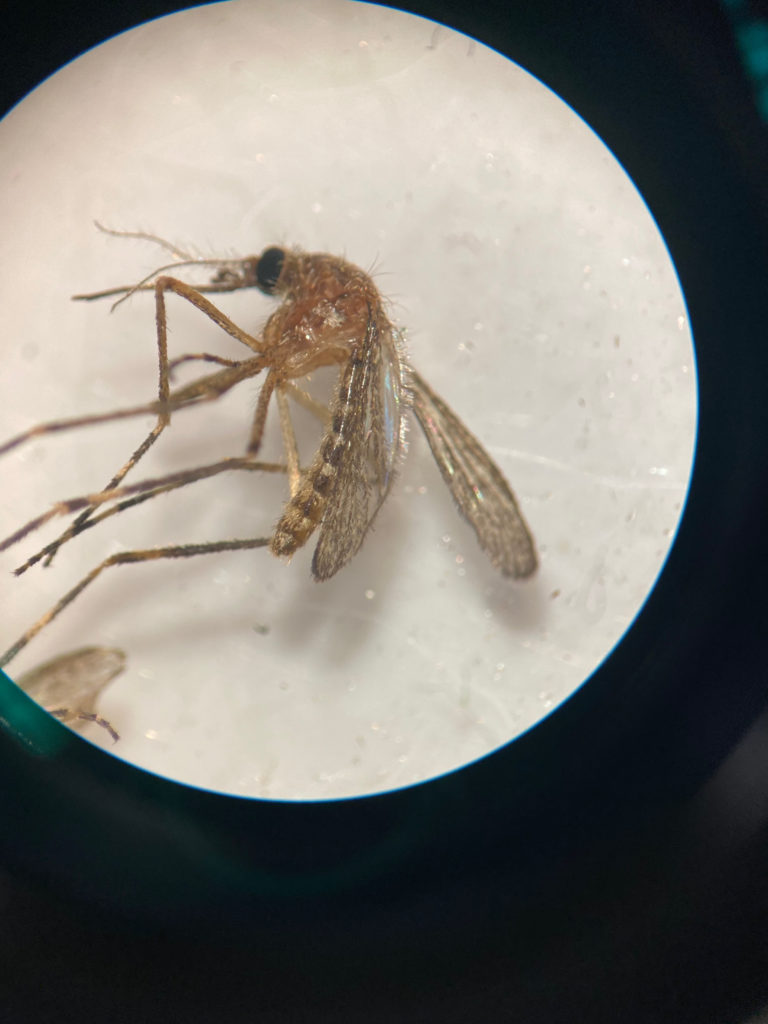After schools start back up and temperatures start to cool down, we almost forget about blood-seeking mosquitoes. Despite the reprieve from itchy welts and buzzing in our ears, mosquitoes still lurk in the background. Where do they go and how do mosquitoes survive the winter?

2 types of winter survival
While most of us have mosquitoes bifurcated into two groups (the big ones and the little ones), there are in reality 51 different species flying around Massachusetts. Each species has its own set of unique survival traits, but for our purposes, their are two key ways that mosquitoes survive the winter.
- As adults – Some mosquitoes survive in a dormant state called diapause which is the insect equivalent of hibernation. There are some exceptions to the diapause process that we will get to shortly.
- As eggs – Mosquito eggs are hardy natural contraptions that can survive our crazy winter conditions. Mosquitoes place their eggs where they will sit and wait for the conditions to be ideal for the mosquito to survive. Some floodwater mosquito eggs can survive over a year!
Temperature queues
Just as we have different temperature thresholds for when we are sunbathing, throwing on a jacket or layering up with coats, mosquitoes have a few temperature thresholds to be aware of.
- 80 degrees – this is the temperature where mosquitoes start to really thrive. Some mosquitoes start to thrive at lower temperatures, but this is the mark that is the best generalization.
- 60 degrees – When the thermometer drops below 60, mosquitoes can still get around and do a few things, but they are pretty lethargic. Most of their energy is gong to shift toward helping their DNA survive to the next year.
- 50 degrees – the 50 degree marker is the signal for most mosquitoes to go into a dormant state.
Don’t forget the snow mosquito!
Aedes Communis is one of the main reasons for all of the above exception wording. It is not the only species, but the one most commonly referenced for being the winter or snow mosquito. If Santa Claus has to worry about mosquito bites, it is because of these blood sucking pests. They lay their eggs in the snow melt and can stay active all winter long around our homes and businesses here in MA.
Selective blood donation
My wife constantly reminds me that we should donate our blood to the Red Cross to help others out. This is great advice and the flip side should be to do whatever we can to avoid donating our blood to mosquitoes. Since mosquitoes are the #1 most lethal animal, we are plenty justified in minimizing their progress. Protect your skin from annoying welts and protect the public health by reducing mosquito borne diseases.
Find out what you can do around your home and workplace from the mosquito experts at Rove Pest Control.
